Is hospitality winning the war for talent?
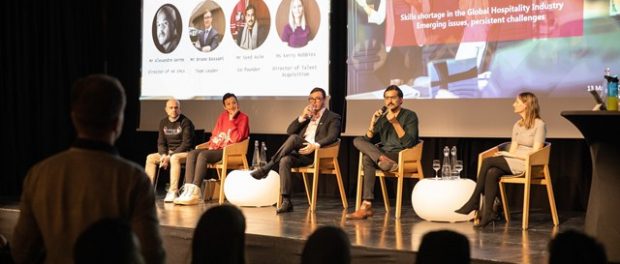
By Stephanie Ruiz De Jongh, Career Development and Industry Placement team, Les Roches Global Hospitality Education.
Can the hospitality industry continue to find the skills it needs to support its huge growth potential? Recruiters and entrepreneurs representing a broad spectrum of businesses debated this topic at a recent event staged by Les Roches Global Hospitality Education. Here’s what they had to say…
Hospitality is booming. Already generating a tenth of all global employment, the industry is set to increase this ratio to 1 in 9 by 2028; by which time it will offer more than 400 million jobs worldwide*.
The sector’s rapid expansion is certainly exciting in economic terms. But can it continue to be fueled by an adequate supply of fresh talent? And what are the key skills and attributes that the industry requires now and in the future?
A group of recruiters, managers and hospitality entrepreneurs recently sat down to debate this topic, in a special event convened by Les Roches Global Hospitality Education.
As one of the world’s top three hospitality management schools, Les Roches is in the vanguard of satisfying the industry’s hunger for skilled professionals. All the panelists were in Switzerland primarily to attend the School’s Career Day, where they could meet and speak with candidates for internships as well as potential future employees.
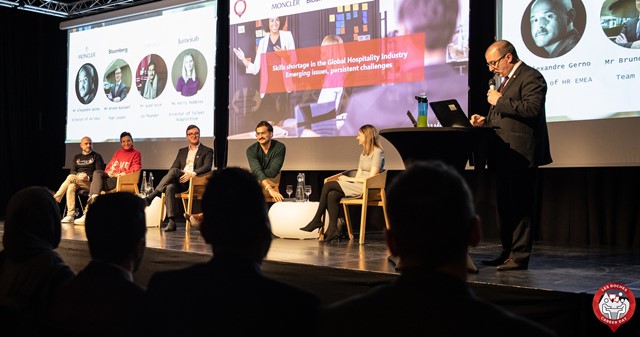
What were they looking for, as they assessed the students at Les Roches?
For Kerry Robbins, Director of Talent Acquisition for Dubai-based Jumeirah Hotels and Resorts, emotional intelligence ranks at the very top of the core skills required for frontline hospitality roles.
“Great service is all the things our people do without being asked by guests. This only comes from being very attentive, having empathy and being able to read certain situations and circumstances,” she says.
Emotional intelligence: nature or nurture (or both)?
Can this level of emotional intelligence be taught before entering the workplace, or coached once within it? Syed Asim Hussein is co-founder of the fast-expanding Hong Kong-based Black Sheep Restaurants. He believes this is a much tougher prospect than building so-called ‘hard’ skills.
“We are in the business of human interaction,” he explains. “I would implore students and new recruits to the industry to work on your soft skills – even if this is in your own time.”
At luxury apparel brand Moncler, the human interaction in store is a vital component of the customer experience. The fast-paced retail environment also places considerable emphasis on the store manager’s soft skills, particularly his or her leadership.
Nicola Eberl, Director of the brand’s Ski Resorts business unit, acknowledges the scale of the challenge. She says, “Managing human interactions can look easy when done well. But it isn’t. This is especially true for our store managers, who have a tough job to run their teams in the most effective way. It’s really important for them to know how to coach others, and this is something we’ve been doing a lot of work on recently.”
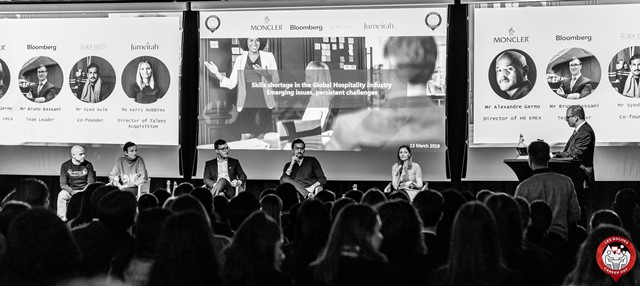
We are all storytellers now
One of the more overlooked soft skills – though it’s gaining increasing prominence – is storytelling. Today, brands must connect with their customers on a much more personal level, building a story around their product or service which is consistent and encompasses all types of communication platform, including face-to-face.
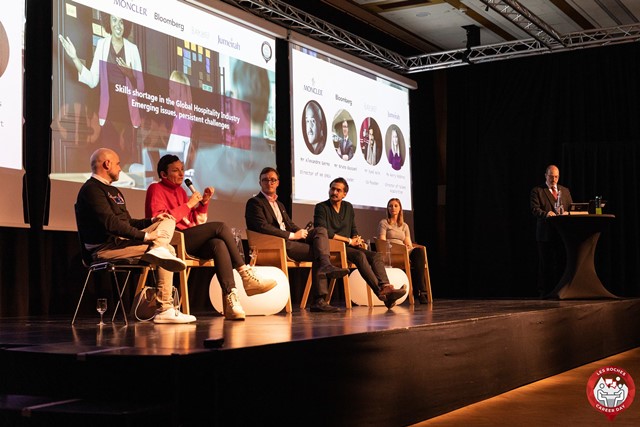
Alexandre Gerno, Director HR EMEA at Moncler, notes, “Storytelling is luxury. What the customer will remember is the relationship you can create and the emotional response you generate within them. This is especially true in our digital age, where some of the human interaction in retail can be lost. It’s important to recover this; and storytelling is the key.”
The good news for hospitality graduates with sharpened soft skills is that their employability stretches well beyond the worlds of travel and leisure. Financial information and technology company Bloomberg is a regular visitor to Les Roches’ Career Days. Bruno Bassani, EMEA Global Customer Support Team Leader, explains why.
“We have space for people with many different backgrounds; but where hospitality graduates can make a difference is through their cultural adaptability,” he says. “It’s possible to train and coach new recruits in emotional intelligence and communication skills; but those who arrive with that package in place definitely have an advantage.”
Don’t aim too high, too soon
What all the panelists agreed on was the need for hospitality professionals to build their ‘employee brand’ from the ground up.
“I started as a waitress,” says Kerry Robbins. “Now, as I plan HR programs and strategies, I’m able to think back to that time and it gives me a better idea of what effect these programs might have on colleagues with frontline roles.”
Nicola Eberl adds, “If you look at the attributes you need to be a good marketer, many of them revolve around a deep knowledge of your product and customer. And where is the best place to acquire this? In our stores. It can never be just about the bare numbers, so when I visit a store I always spend around half a day working the sales floor. And every time I walk out of that store I’ve learned something new and useful.”
Syed Asim Hussein cautions against a tendency to want too much, too soon. He says, “A lot of graduates want to be in development, analysis, consulting… but I say that there’s a rite of passage you must go through to get there. You have to be on the front lines first – there’s no substitute for this, because it’s where you learn and develop your soft skills.
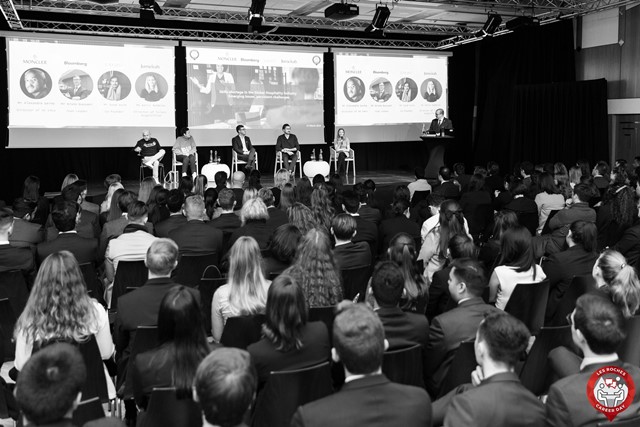
“And this requirement is not going away, either. I always say that restaurants and churches are going to be our last non-digital forums. For the GenYs and GenZs restaurants will become precious spaces away from their screens and phones. We have to ensure we have the capacity to continue to offer them non-digital, human interactions.”
* Source: WTTC Travel and Tourism: Global Economic Impact and Issues 2018

